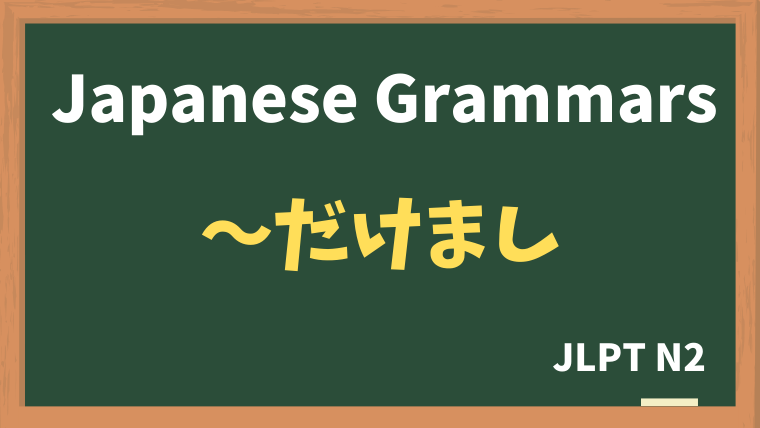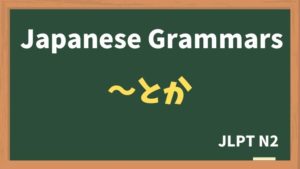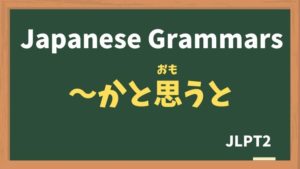
Explanation:〜だけまし
fa-check-circleMeaning
“今の状況は良くないが、〜よりはいい。”
“The current situation is not good but, it’s fortunate that It isn’t any worse“
Used to express that although the situation might not be ideal, there is still something to be grateful for or consider as a positive aspect. It implies that the current situation could have been worse.
fa-check-circleForm
V(plain form)+ だけまし
イA(plain form)+ だけまし
ナA(plain form)+ だけまし
Nである + だけまし
fa-check-circlePoints
- Gratitude for a better-than-worse situation: It emphasizes that despite some negative aspects, the outcome or situation is still better than the worst possible scenario.
- Mild consolation: Often used as a way to console or find some relief in a less-than-perfect situation.
- Comparison to worse outcomes: It compares the current situation with a worse one, acknowledging that things could be worse.
fa-check-circleJLPT Level
N2
Sample sentenes
海外旅行中に荷物を全部盗まれたが、命が無事だっただけましだ。
All my luggage was stolen during my trip abroad, but at least my life was safe.
トラックとぶつかって私のバイクが壊れてしまったが、怪我がなかっただけましだ。
My motorcycle was wrecked in a collision with a truck, but at least I wasn't injured.
このアパートは小さくて、あまり綺麗じゃないけど、会社から近いだけましだ。
This apartment is small and not very clean, but at least it's close to the office.
妻の料理はあまりおいしいとは言えないが、料理してくれるだけましだ。
My wife's cooking isn't very tasty, but at least she cooks for me.
給料が低くても、仕事があるだけましだ。
Even though the salary is low, I’m grateful to at least have a job.
Vocabulary
| Japanese |
English | |
| 荷物 | にもつ | luggage |
| 命 | いのち | life |
| 給料 | きゅうりょう | salary |






